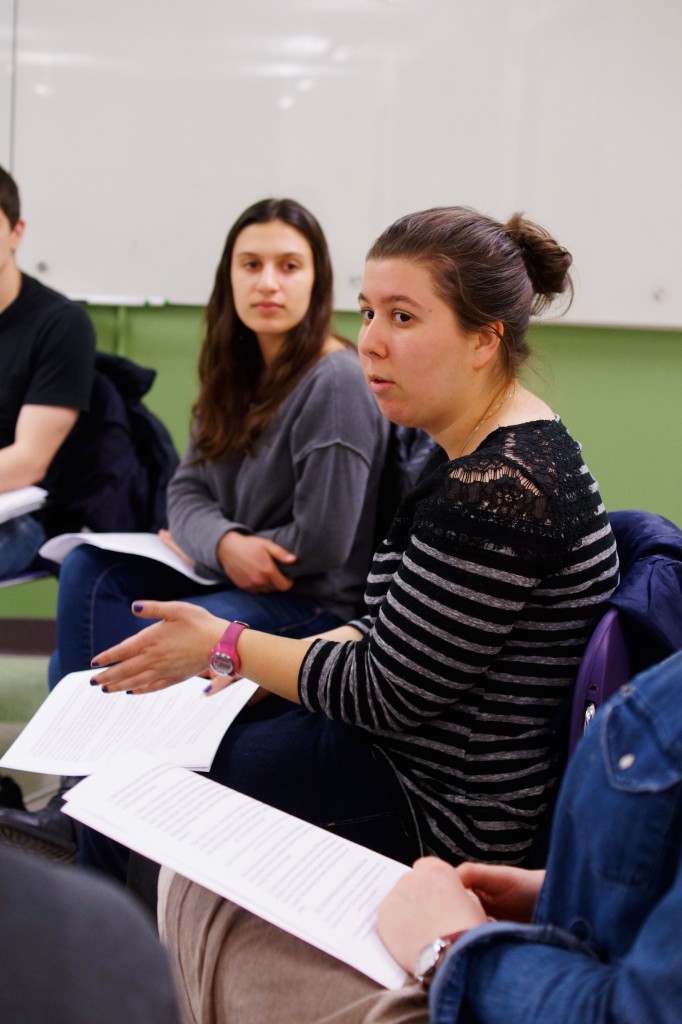
Decades later, third-generation survivors examined the psychological effects that the Holocaust had on their families.
The event was hosted by the Hillel subgroup 3G, which is a student group of third-generation Holocaust survivors. Over a dozen students discussed their families’ experiences with the trauma, discrimination and genocide of the Nazi regime in World War II.
Karly Weinreb, the president of 3G and a senior double-majoring in psychology and Judaic studies, said that the Holocaust caused emotional damage that transcends generations and goes unnoticed.
“Trauma that is passed down is not really studied or talked about, and it is a very subtle subject that can be so prevalent in somebody’s life,” Weinreb said.
David Oestreicher, the co-vice chair of 3G and a junior double-majoring in history and psychology, said that regardless of the sensitive nature of the subject, discussion was key to raise awareness and cope.
“This particular event is something that many grandchildren of survivors are interested in talking about,” Oestreicher said. “It’s not something we talk about with our families, like the trauma of our parents and grandparents.”
Organizers distributed literature detailing how Holocaust survivors suffered from high rates of post-traumatic stress disorder (PTSD), recurring nightmares, survivor’s guilt and the stress caused by post-war relocation camps and immigration. Students shared their personal stories about family members who survived the Holocaust, and how these illnesses changed their lives.
Tamar Rosen, a junior double-majoring in human development and sociology and a third-generation Holocaust survivor, said it was comforting to know that others understood what she was going through.
“A lot of times, when you are a 3G, you feel like you cannot talk to anyone about it,” Rosen said. “That one thing your grandparent does, that really bothers you or that really upsets you, or that one thing that you do that no one else seems to be doing makes you feel very alone and isolated.”
Oestreicher said he had organized the meeting to facilitate discussion and sharing of personal experiences.
Yael David, a junior majoring in Judaic studies, said the event was welcoming for students with all different family backgrounds.
“I feel like it was a very safe group and even though I’m not a third-generation Holocaust survivor myself, I felt like with my own experiences I was able to connect with some of the same sentiments,” David said. “It was just a very empowering experience.”
Rosen said that though it is often hard for descendants of Holocaust survivors to share their unique experiences, discussions such as these are beneficial.
“Though in this situation, with these people in this context, people open up and start to realize what it is that has happened in their life,” Rosen said. “They can see their grandparents in a new light, themselves in a new light and the Holocaust in a new light.”


